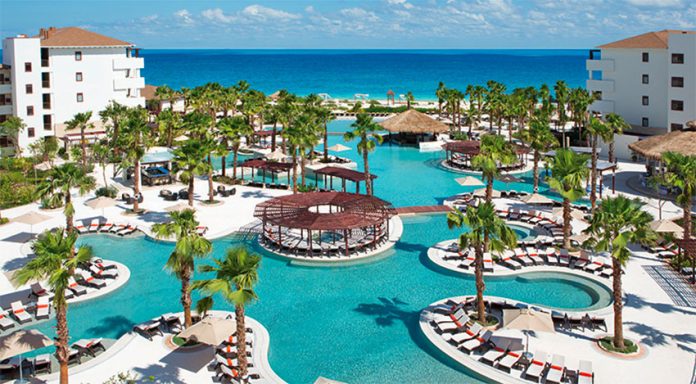Hotel revenue, rates and occupancy levels all declined in 2019, while the number of rooms grew much faster than demand, leading one expert to predict that challenging times lie ahead for the Mexican tourism industry.
According to hotel data company STR, revenue per available room (RevPAR) decreased 6.6% to US $69.11 in the first 11 months of last year, the average daily rate (ADR) fell 3.8% to US $112.17 and occupancy levels declined 2.9% to 61.6%.
The number of hotel rooms increased by almost 3.2% in the same period but demand for hotel accommodation in Mexico grew by just 0.1%.
“There is certainly a threat of oversupply in Mexico,” Jennifer Dohrmann-Alpert, vice president for advisory services at global design firm HKS, told the website Travel Weekly.
“We’ve seen tons of developments entering the pipeline, especially in places like Riviera Nayarit and Cabo, and many of these projects are opening between 2020 and 2025. If there’s an economic slowdown, I think we could see definite impact from oversupply in the next three to five years,” she said.
Dohrmann-Alpert said the recent increase in cartel-related violence and the government’s decision to disband the Tourism Promotion Council (CPTM) and divert its multimillion-dollar budget to the Maya Train project will also impact negatively on tourism.
The dissolution of the CPTM has already had an effect on destinations such as Cancún, the Riviera Maya and Cozumel, she said, a claim backed up by STR data.
RevPAR on the Yucatán peninsula declined 12.9% to US $111.94 in the first 11 months of last year, ADR fell 10.6% to US $163.28 and occupancy levels decreased 2.5%.
Dohrmann-Alpert said that another reason for the declines could be that “Mexico has banked much of its tourism expansion in the broader Yucatán on all-inclusive properties” whereas “millennials, in particular, may not be as keen on all-inclusive resorts.”
As a result, “that segment may be starting to trend downward a little bit as the travel market [shifts to preferring] more of an experiential travel product,” she said.
Other factors identified as causing a decline in hotel bookings and revenue in the Yucatán peninsula last year are the massive arrival of sargassum on Caribbean coast beaches and the increasing popularity of cruise-ship vacations.
“There has been a significant push toward cruise tourism in the last five years,” Dohrmann-Alpert said.
“With five million-plus visitors coming to the Mexican Caribbean [in 2019] via cruise ship, this could have a negative long-term impact on RevPAR as hotels have to drive prices down to attract visitors back.”
Given the downturns seen in 2019 and the uncertain outlook, the analyst predicted that hotel developers may be more reluctant to go ahead with new projects in the near future. Dohrmann-Alpert cited the decision last month by Apple Leisure Group to put investments worth between US $500 and $600 million on hold as one example of a developer getting cold feet.
“Some institutional investors are off-loading projects,” she said, and “savvy developers like AMResorts have started to scale back on their ambitious expansion plans for the region as they assess the future demand for luxury all-inclusive resorts.”
Source: Travel Weekly (en)
